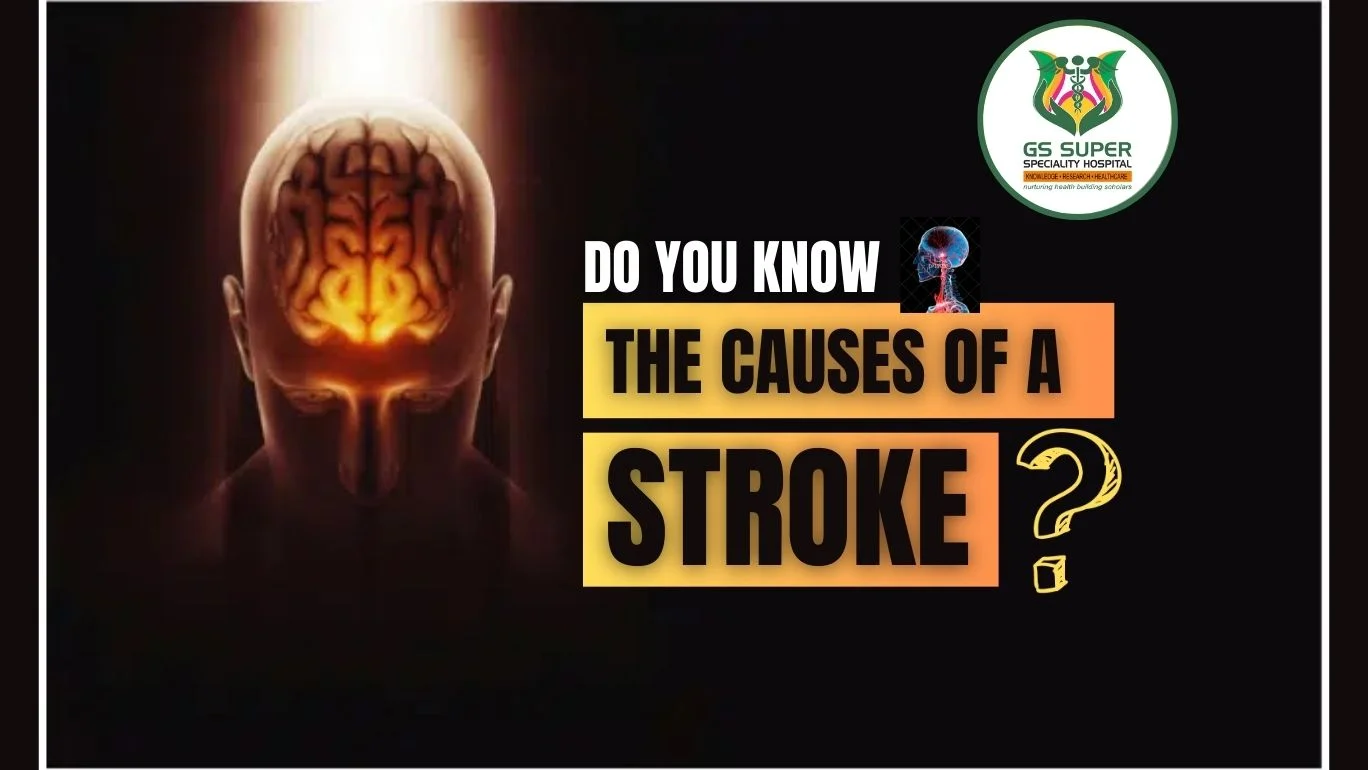Stroke is a common cause of disability and, even worse, death, killing over 400,000 people each year around the world.

When a person's brain stops functioning, it is a stroke caused by a sudden disturbance in the blood flow to the brain. Anyone can fall prey to it, but it's more common in older people.
A cerebrovascular accident (CVA) happens when an artery supplying blood to your head or neck is blocked or partially blocked by a blood clot, restricting the usual blood flow to your brain tissue. This can lead to the following:
1. Feeling Weak or Dizzy
2. Pain in your Arms and Legs
3. Slurred Speech
If you have symptoms like these after having CVA, call 112 immediately!
The causes of a stroke may vary, but they often cluster into four major categories: atherosclerosis, diabetes, hypertension (high blood pressure), and smoking. Atherosclerosis is the build-up of fatty plaque inside your arteries. High cholesterol and high triglycerides can also cause the narrowing of blood vessels, leading to stroke if not treated properly. Smoking causes inflammation in the brain, which may lead to a greater risk for stroke and other types of dementia, like Alzheimer's disease. All the Best Neuro Hospital in UP also link high blood sugar levels with increased risk for vascular diseases such as atherosclerosis; Type II diabetes tends to increase these risks because it promotes too much insulin production, which leads directly to an increase in blood glucose levels over time!
This article will help you gain in-depth knowledge not only about the cause of a stroke but also educate its types, symptoms, related risk, and essential factors that will aid in preventing a stroke- well... That's because we want you to be aware before something happens!
Strokes are classified into four main types:
1. Cerebral Infarction (Cerebrovascular accident) - Cerebral infarction is when the blood supply to your brain becomes blocked. While the reason for this condition may vary, it is commonly caused due to atherosclerosis and hypertension. Some of the best neurologist in UP run transcendental meditation and relaxation programs to manage hypertension and high blood pressure effectively.
2. Subcortical Arterial Ischemia - Occurs when blood flow to specific brain parts becomes restricted due to the narrowing of arteries or damaged valves in large vessels such as those leading from your heart. A combination of changes in blood pressure and cholesterol levels is often responsible for this type of stroke.
3. Embolic Stroke (Thromboembolism) - An embolus composed primarily of fat globules or clots can travel through arteries and block them, causing a thrombosis which causes damage inside your brain tissue; this condition may be accompanied by inflammation, which causes further complications later on down the road if left untreated appropriately!
The research carried out in GS Hospital shows that there are several risk factors for stroke, including high blood pressure and diabetes. Other factors that can increase your chances of stroke include family history, smoking, and rising age.
1. High blood pressure: It's estimated that one in three adults have some form of hypertension—a condition characterized by abnormal increases in blood pressure over time. Still, only one-third of those people are being treated for it.
2. High cholesterol: This condition puts you at risk for cardiovascular disease (CVD) when it's left untreated.
3. Smoking: Tobacco products contain thousands of chemicals that may increase your risk for heart disease.
4. Diabetes Mellitus Type 2: Having diabetes can make you more likely to develop CVD later in life due to reduced circulation throughout the body.
5. Family History: Your personal history is essential in determining how susceptible you are to developing certain diseases and how well they will respond when they occur.
Stroke symptoms include:
1. Facial Droop - This is the most common stroke symptom, and it can affect both or just one side of your face at once. The records from one of the Best Hospital in Hapur show patients may also have difficulty speaking, swallowing, and chewing food properly.
2. Difficulty walking or being able to move around at all (unable to put on shoes).
3. One side of your body will feel immense weakness that will gradually affect muscle control (for example, weakness in one leg or arm). This could be mild or severe depending on how long after the stroke occurred, it occurred.
When a stroke occurs, many people can help, but the first person to notice that something is wrong will be your family or loved one. The family members must treat this as an emergency and take the patient to the nearest hospital, where an ER physician, nurse practitioner, neurologist, or other medical professionals specially trained in treating strokes will examine them. A state circular forwarded by the 10 Best Neurology Hospitals in Uttar Pradesh stated, "If you think someone has had a stroke and they aren't talking clearly or walking correctly after receiving treatment, this could mean that they haven't been properly diagnosed yet!"
Knowing your risk factors is vital to managing your health. The more you know about your stroke risk, the better you can handle it. Knowing your risk factors can help you avoid stroke, other health problems, and even death by preventing or controlling high blood pressure and cholesterol levels (a significant risk factor for heart disease) as well as diabetes mellitus (which is associated with cardiovascular disease).
Knowing how likely someone is to have a heart attack or stroke based on age alone isn't enough; it's also essential to understand what lifestyle changes might be able to lower this probability even further. For example: Do they smoke cigarettes? How much do they weigh?
Are they physically active regularly? How often do they eat healthy foods—or not eat at all before bedtime? These questions should be asked periodically so everyone has access when needed!